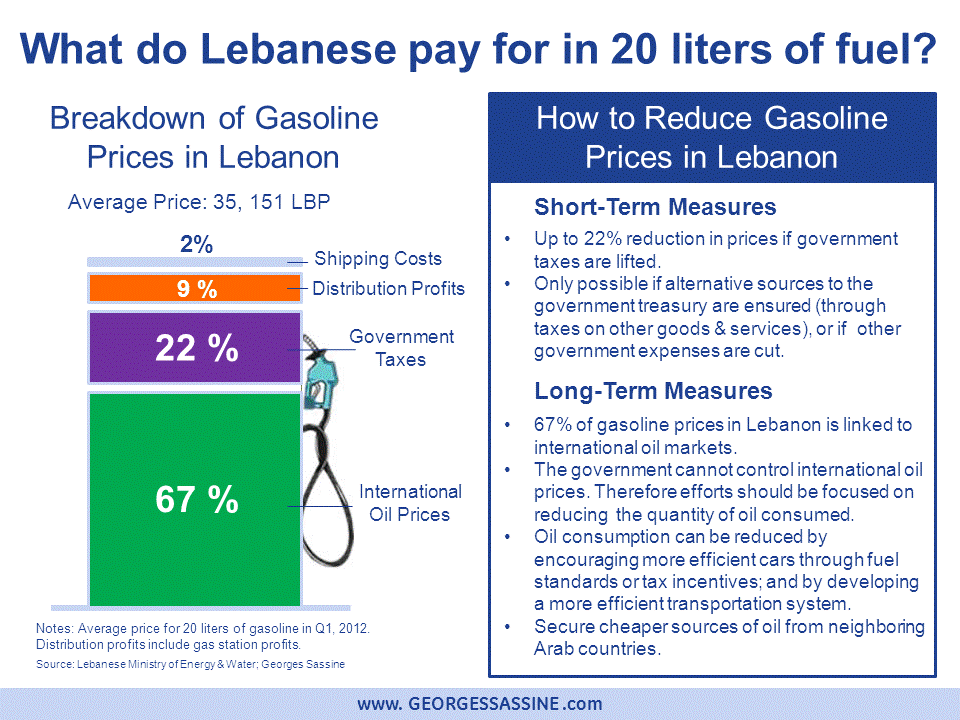Food prices in Lebanon have risen by more than 66 percent since 2006. Increasing food prices are severely impacting Lebanese consumers as families spend on average around 34 percent of their expenditures on food, and can reach more than 60 percent for the poorest households.
One of the main causes of increasing food prices in Lebanon is the country’s high exposure to international food price fluctuations, given that Lebanon imports more than 80 percent of the food it needs. This has affected Lebanon severely during the 2008 global food crisis where food prices increased dramatically across the board. For example, Lebanon’s cereal import bill increased by more than 65 percent from 2005 to 2008, vegetable oils and sugar by 45 percent, meat products by 40 percent, and dairy products by 20 percent – according to the Lebanese Ministry of Agriculture.
In order to reduce food inflation and the impact from international food shocks it is important to address the underlying causes of high food prices. There are many factors contributing to high food prices, thus requiring a combination of policy responses.
Lebanon needs to make a strategic shift from low profit traditional agricultural practices to more economic and less water-intensive products.Georges Sassine
To start, high and unregulated profits are leading to overpriced food. Influential trading cartels dictate high profit margins in Lebanon at the expense of consumers. While they are supposed to be regulated by the government according to a 2005 law, it remains improperly enforced. Also the dominance of middlemen between producers and consumers raises final food prices. In this case the solution is to reduce the number of intermediaries and establishing agricultural cooperatives.
On the other hand, the most effective response for a net food importer like Lebanon is to expand domestic agricultural production and reduce its vulnerability to international food shocks.
Currently, the Lebanese agriculture is constrained by underinvestment in the sector. While the government recently increased its budget, it remains insufficient and falls short from the required investment levels. Less than 1 percent of both the government budget and bank lending are allocated to agriculture in Lebanon.
Agriculture production is also constrained by weather conditions, the use of inefficient technologies, and inadequate infrastructure which is limiting water access to 75 percent of farmed land. This is why Lebanon needs to make a strategic shift from low profit traditional agricultural practices to more economic and less water-intensive products.
Finally, trade policies of neighboring countries are further exacerbating the competitiveness of Lebanon’s agricultural sector. Regional cooperation will then be essential to improve trade integration, including bilateral and regional trade agreements.


